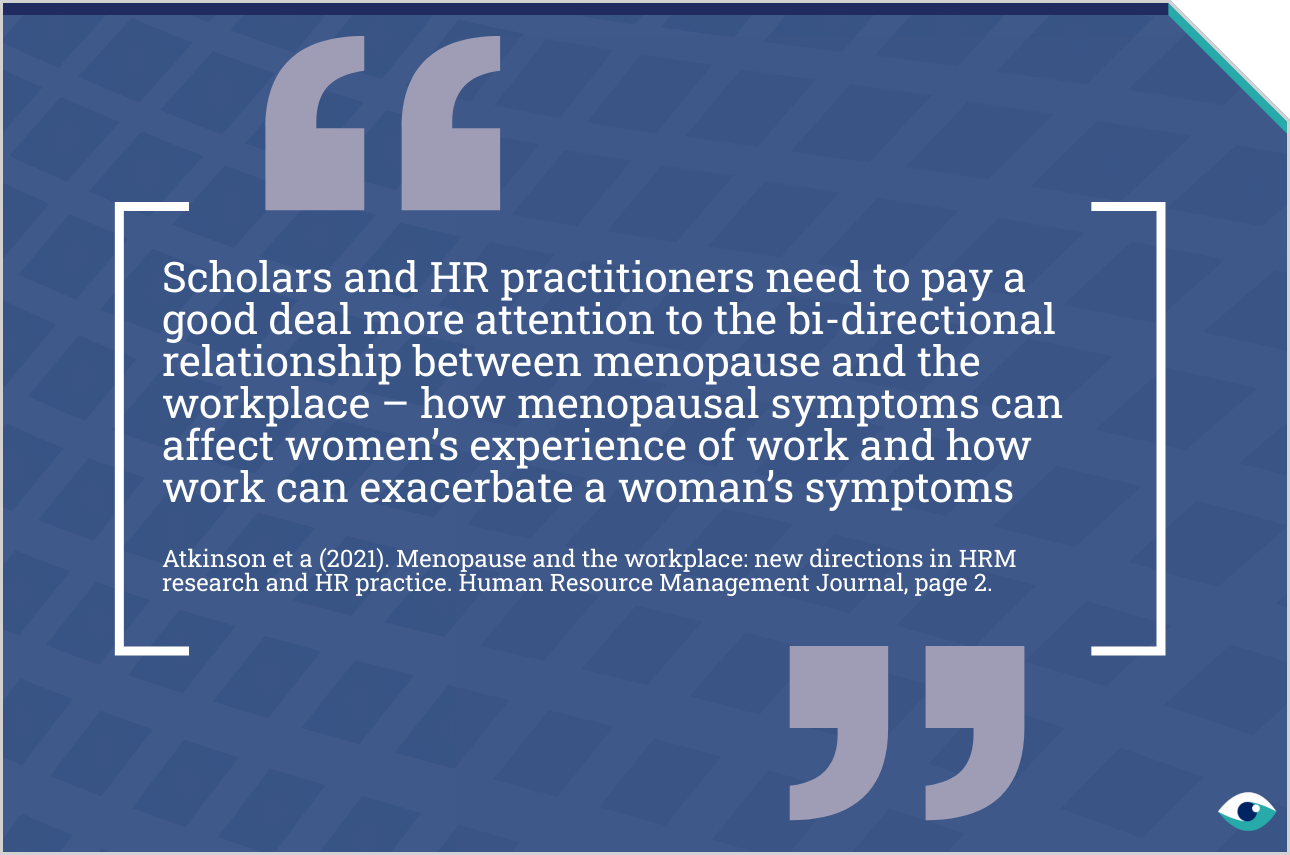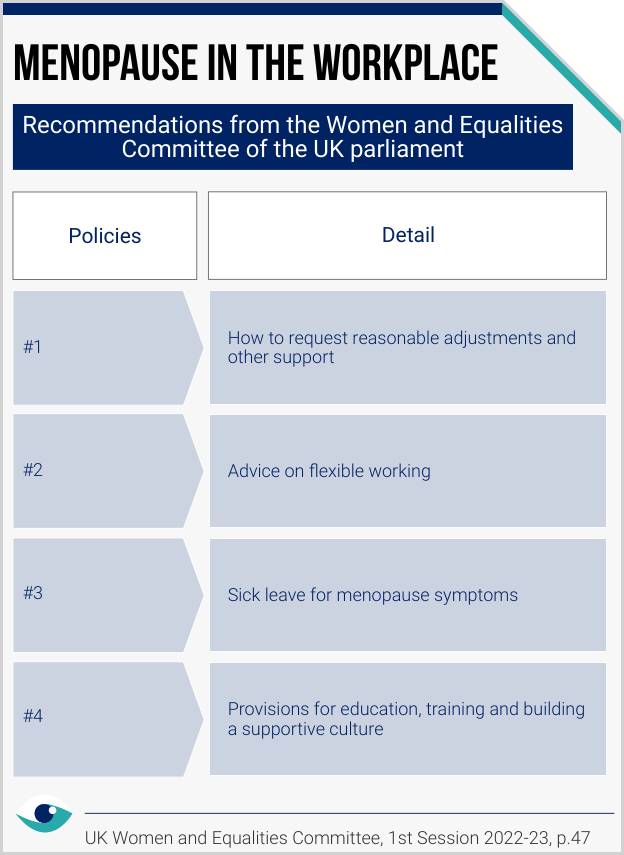A recent rise in employment tribunal cases in the UK highlights the growing legal and financial risks for businesses that fail to support female employees during menopause. Managing menopause in the workplace presents significant challenges, requiring businesses to confront health, legal and productivity issues, particularly in precarious work environments. Addressing menopause is essential for companies committed to UN SDG#5 (Gender Equality) and SDG#8 (Decent Work) and fostering inclusive work environments. Integrating menopause into human resource management (HRM) policies can support employee well-being, reduce absenteeism and improve retention.

Supporting menopause in the workplace: a business imperative
Implementing inclusive menopause-conscious HR policies supports employees, lowers risks and can improve organisational performance
People: Social & Governance impacts
Global (all industries)
AT A GLANCE
Addressing menopause in the workplace presents a significant opportunity to enhance employee well-being and boost productivity.
This is crucial as neglecting these issues can lead to legal risks, reduced workforce retention and negative impacts on company performance.
HRM policies adapted to menopause-related concerns can help to sustain a healthy and engaged workforce.
Bidirectional impacts
While further academic studies into menopause are needed, narrative accounts attest to impacts including cognitive and physical difficulties, absence and embarrassment for affected employees. Research also suggests that impacts are bi-directional, with menopausal experiences often worsened by a lack of workplace support. In the context of an ageing population and increasing female labour force participation, ignoring menopause in the workplace is associated with significant opportunity costs.
Legal and reputational risks
In the UK, recent employment litigation has lent support for treating the issue of menopause as a form of disability eligible for protection under anti-discrimination legislation. Given a reasonable expectation of growing global coverage of the issue of menopause in the workplace, and the associated legal and reputational costs of inaction or non-compliance, businesses should recognise the risk inherent in inadequate support.

Practical measures
Integrating menopause into gender equality policies is critical for creating inclusive work environments, particularly in sectors with precarious working conditions. Regarding specific human resource management (HRM) steps, the Chartered Institute of Personnel and Development (CIPD) has produced leading guidance for managers which favours an open and honest environment for one-on-one discussions and risk assessments of physical factors such as workplace temperature, ventilation, uniforms and sanitary facilities.

Leading corporate actions
While public disclosure of menopause-related actions is infrequent among all types of company and industry, and academic research is still lacking, there is evidence of proactive corporate action. Bank of America has introduced menopause-specific benefits, including specialised healthcare support and educational resources. Vodafone has implemented policies that provide greater flexibility and access to healthcare for women experiencing menopause. Finally, NatWest has adopted strategies aligned with broader efforts to retain skilled female employees.
FURTHER READING
- Menopause at work: Guide for people managers (CIPD)
- Menopause and the workplace (2022) (UK parliament)
- Menopause (key facts) (WHO)
